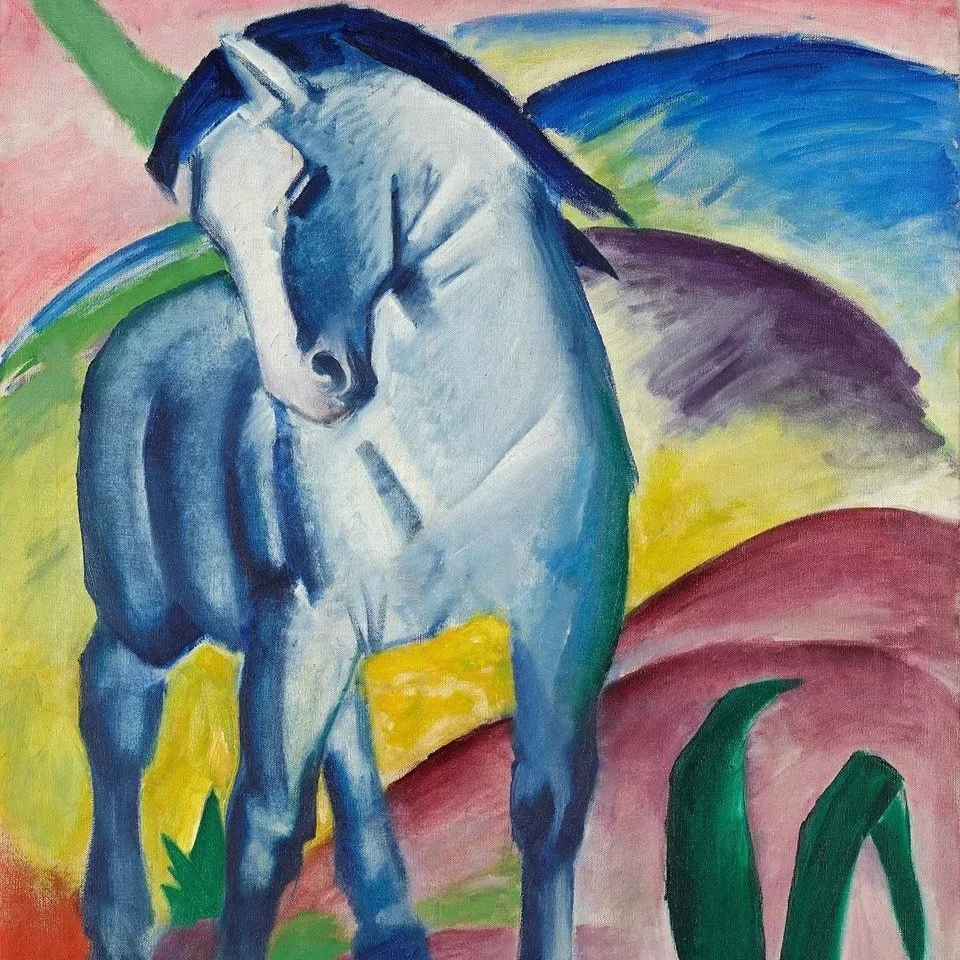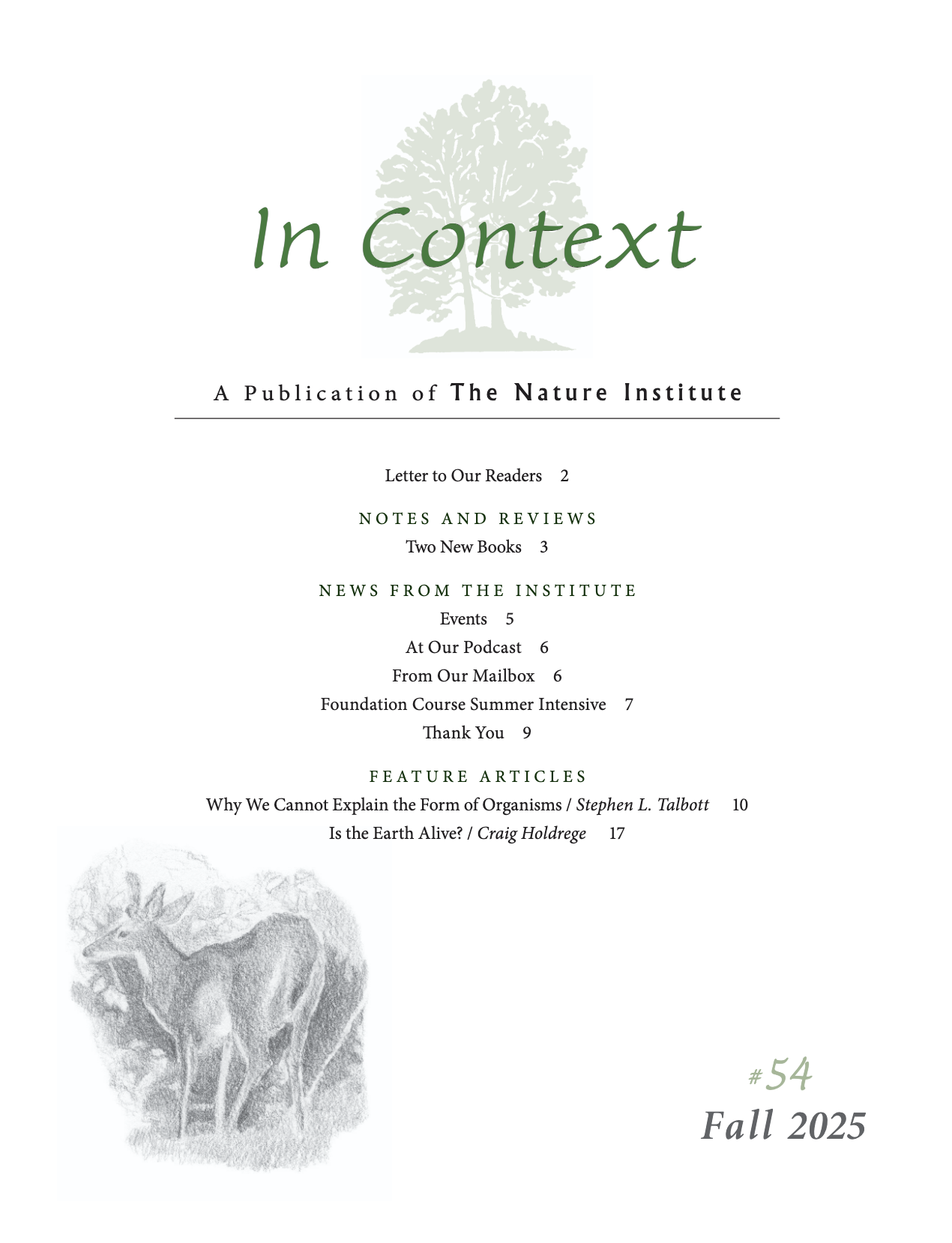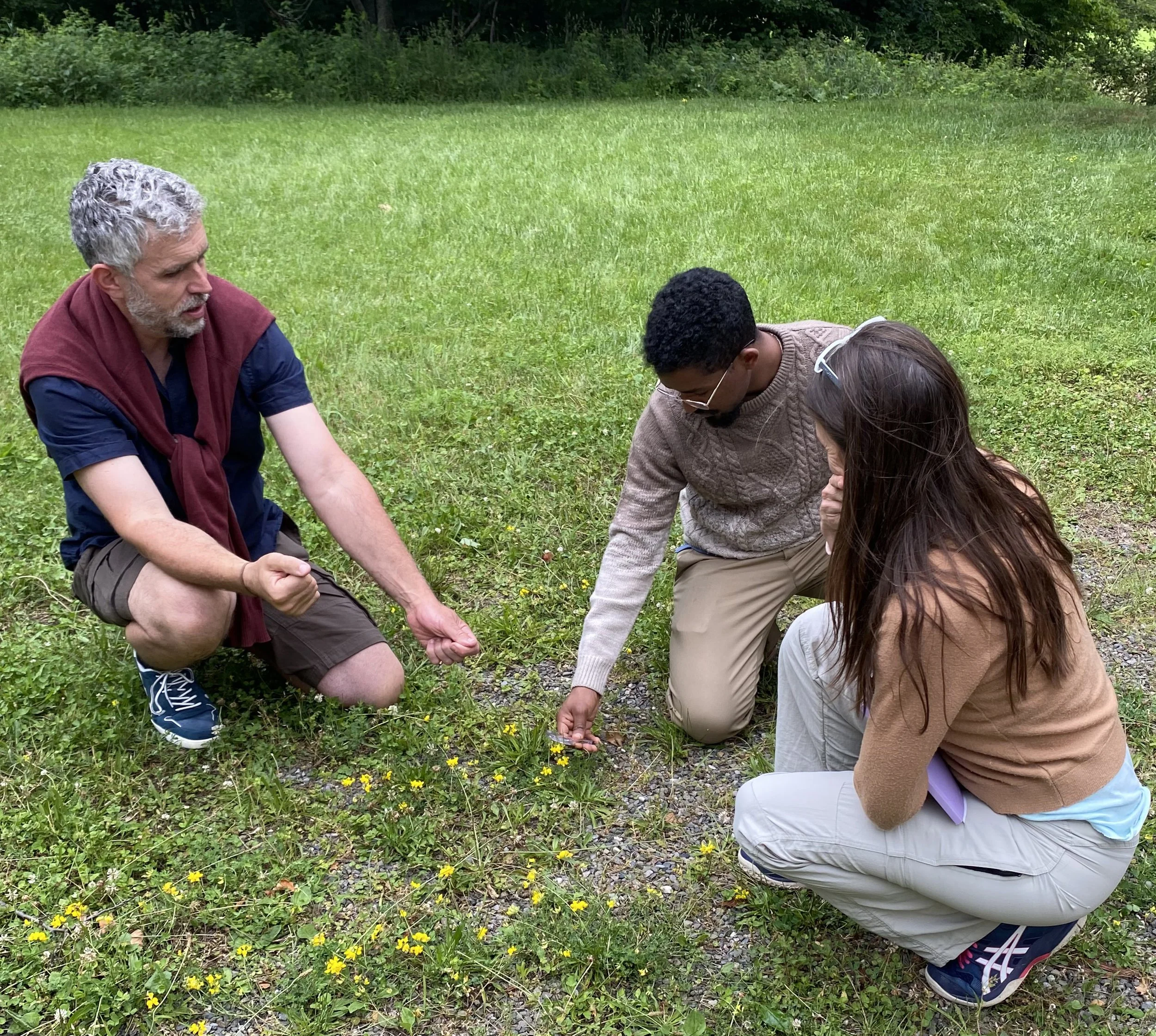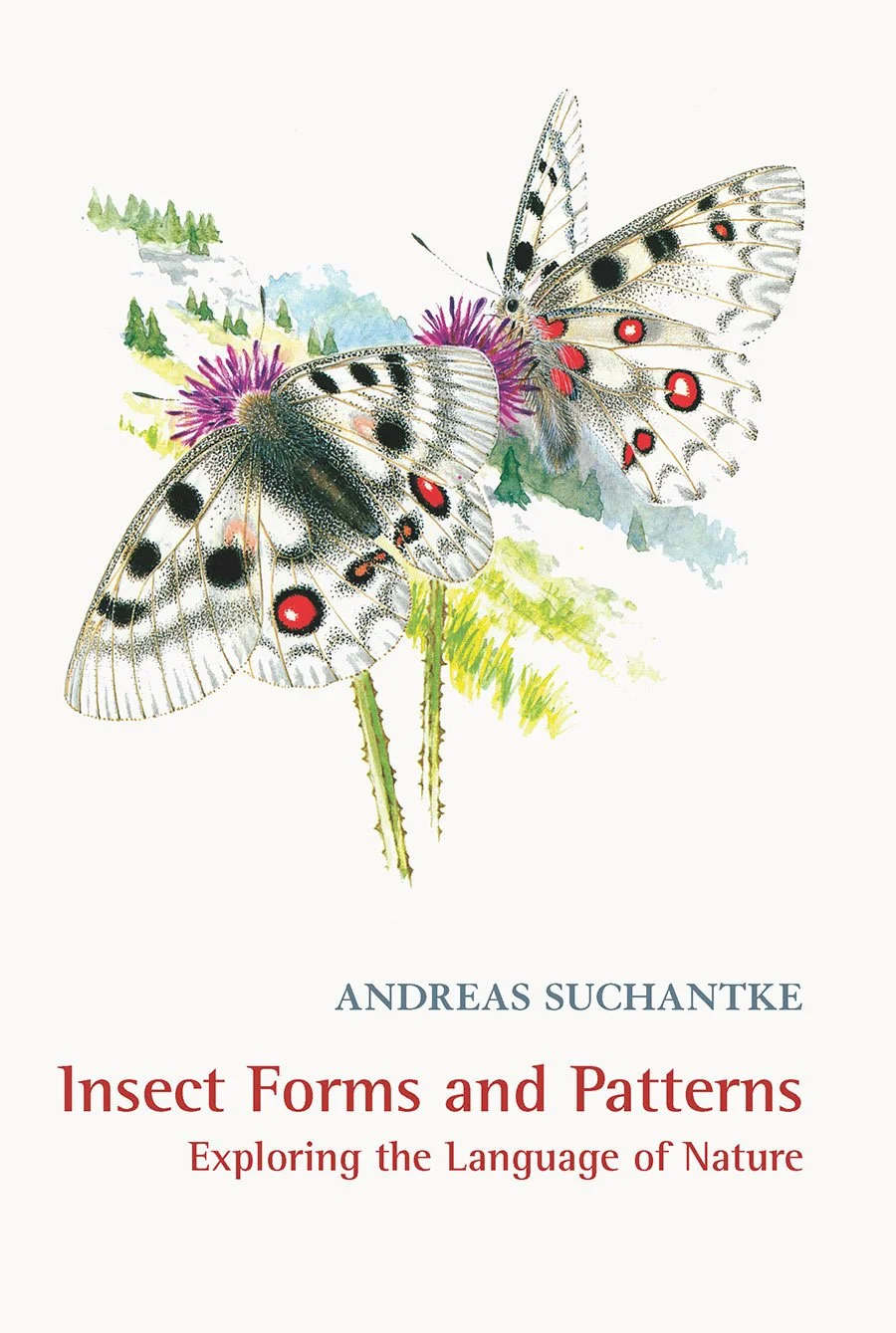“The question is not what you look at, but how you look and whether you see.”
— HENRY DAVID THOREAU
Upcoming Events
Tuesday, March 10, 7 pm
The Gift of the Seed: From Mosses and Ferns to the Flowering Plants
A talk by Henrike Holdrege at The Nature Institute
Listen to a new short episode on our podcast, In Dialogue with Nature, where Craig Holdrege provides a concentrated expression of the heart of our work at The Nature Institute.
In Context: Fall 2025 Issue
The fall 2025 issue (#54) of our biannual publication, In Context, is now available in print and online. New writings include a chapter from Stephen Talbott’s new book, Organisms and Their Evolution: Agency and Meaning in the Drama of Life, “Is the Earth Alive” - a feature article of Craig’s unfolding work, new publication announcements, plus news of our many activities, including highlights from this summer’s foundation course intensive.
About the work of The Nature Institute — In a rare interview, recorded in Brazil, Henrike and Craig Holdrege speak of their transformative work and the Goethean perspective that has long inspired it. This Q & A followed a two-week course, “Seeing Nature Whole,” that the Holdrege’s have frequently taught each December in Florianópolis.
New Foundation Course
Encountering Nature
and the Nature of Things: Foundation Course in Goethean Science
Next Foundation Course Begins March 2026
— COURSE IS FULL —
If you would like to put your name on the waitlist, please email info@natureinstitute.org
New Video
Is the Earth Alive?
Craig continues to develop and share his ongoing work to think in a new way about the entire planet as a living whole. In November 2025, he held a workshop at Escola Schumacher in Sao Paulo, Brazil on this topic. They have made his opening talk available on their Youtube channel.
Featured Article
Sympoiesis: From Thinking About to Being With
Separate entities can either compete or develop strategies to cooperate. In either case, the starting point is separation. This is a foundational assumption of modern biology. But what if relatedness is more fundamental? How would we behold living beings and what we call their environment? A consideration of oak trees guides this exploration of sympoiesis — creating together.
News From The Institute
Read here about recent staff activities at the institute and abroad including lectures and workshops with the North American summer youth section conference, artists, and philosophers, and collaborative trainings in climate science, mathematics, and Goethean practice with teachers and visiting scholars. Also see highlights from the final summer intensive of our previous foundation course cohort, and look ahead to welcoming our newest cohort beginning this winter.
Our online Bookstore offers titles from our faculty and other Goethean authors whose work we value. We encourage you to browse or contact us with any questions.
Other Research and Resources
In addition to publishing our staff’s work relating to Goethean Science and Phenomenology on this site, we also periodically showcase the work of others in the field. A new such addition to our Writings By Author section is the work of Mark Riegner PhD, who taught Ecology and Evolution for 35 years at Prescott College in Arizona, and has authored four insightful articles that you can link to from here.
From a Reader…
Dear Craig,
Once again I’m introducing papers from The Nature Institute website, this time for a HS botany course, and I’m just so grateful for your work (and Steve’s) and that a resource like yours exists. …I appreciate so much those who approach science thoughtfully, with open minds and hearts. It has lit a fire in several students over the years, and helped to humanize even those who are not especially otherwise interested in science.
- Executive Director, Waldorf High School










